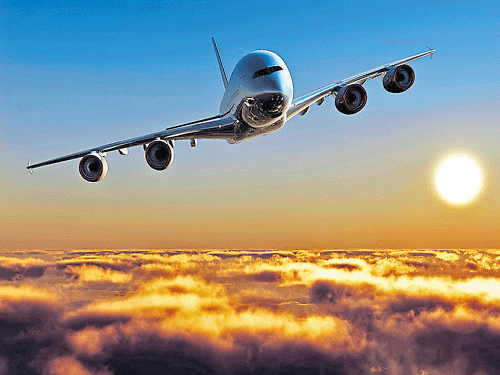
The aviation sector is on a growth path. With over 20 per cent domestic growth and a little less international growth, it is one of the leading sectors. It is also well established that with good air connectivity, both domestic and international, the advantages of globalisation become more easy.
While ease of doing business in India has been highlighted by the government, the essentiality of a good aviation sector to attract FDI has not been highlighted.
India’s aviation industry has been sick with high losses and debt, both for airlines and also airports, mainly due to heavy incidence of taxes and fees. There has been relief from the fall in Aviation Turbine Fuel (ATF) prices, but nearly 30 per cent sales tax on ATF in some states is killing. Whether it is Passenger Service Fee or Airport Development charges, such charges in a competitive environment, bring down the profitability of airlines. While some airlines go down and new ones come up, it is important that the health of the industry is maintained, as it can have a fallout on the rest of the economy.
The Draft Civil Aviation Policy’s emphasis on regional and remote air connectivity is excellent. However, it wants to impose a 2 per cent cess on all tickets. While I would like to support this cess as long as it is kept in a separate fund, it should be done by reducing some other tax/ fee. It should not become an additionality.
The MRO (maintenance, repair and overhaul) part of the aviation sector is yet another sad story of how adverse taxation, including customs levy has not permitted growth of an industry, which should be rightfully located in India. Most of our civil fleet goes abroad for its MRO functions and countries like Sri Lanka, Malaysia and the UAE get the benefit of it.
The last two Finance Ministers have mentioned this in their budget speech, but have not managed to rectify it. India is loosing out on this Rs 5000 crore industry. Unless India is able to reduce taxes/fees to match our neighbours we will loose this business.
The Finance Minister should not look at the aviation industry as a milch cow but as catalyst to economic growth.
(The author is a Chairman of International Foundation for Aviation, Aerospace and Development (India Chapter).